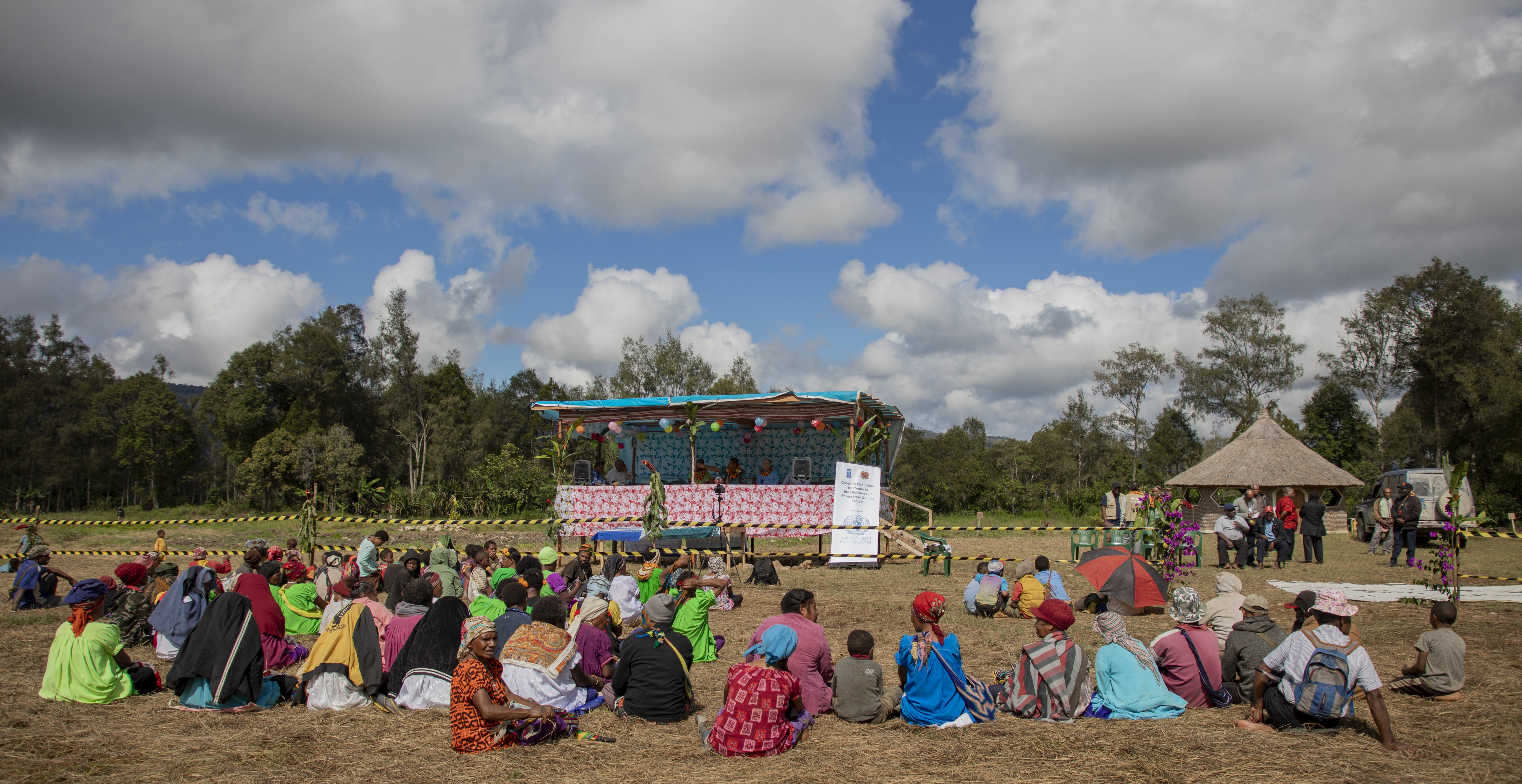
Indigenous communities in Papua New Guinea, a traditional way of life is threatened by the interconnected impacts of climate change and conflict.
Nestled amidst the pristine and remote highlands of Papua New Guinea lie the captivating mountainous regions of Hela and Southern Highlands.
Often referred to as the country´s gardens, these two provinces play a prominent role in local food production.
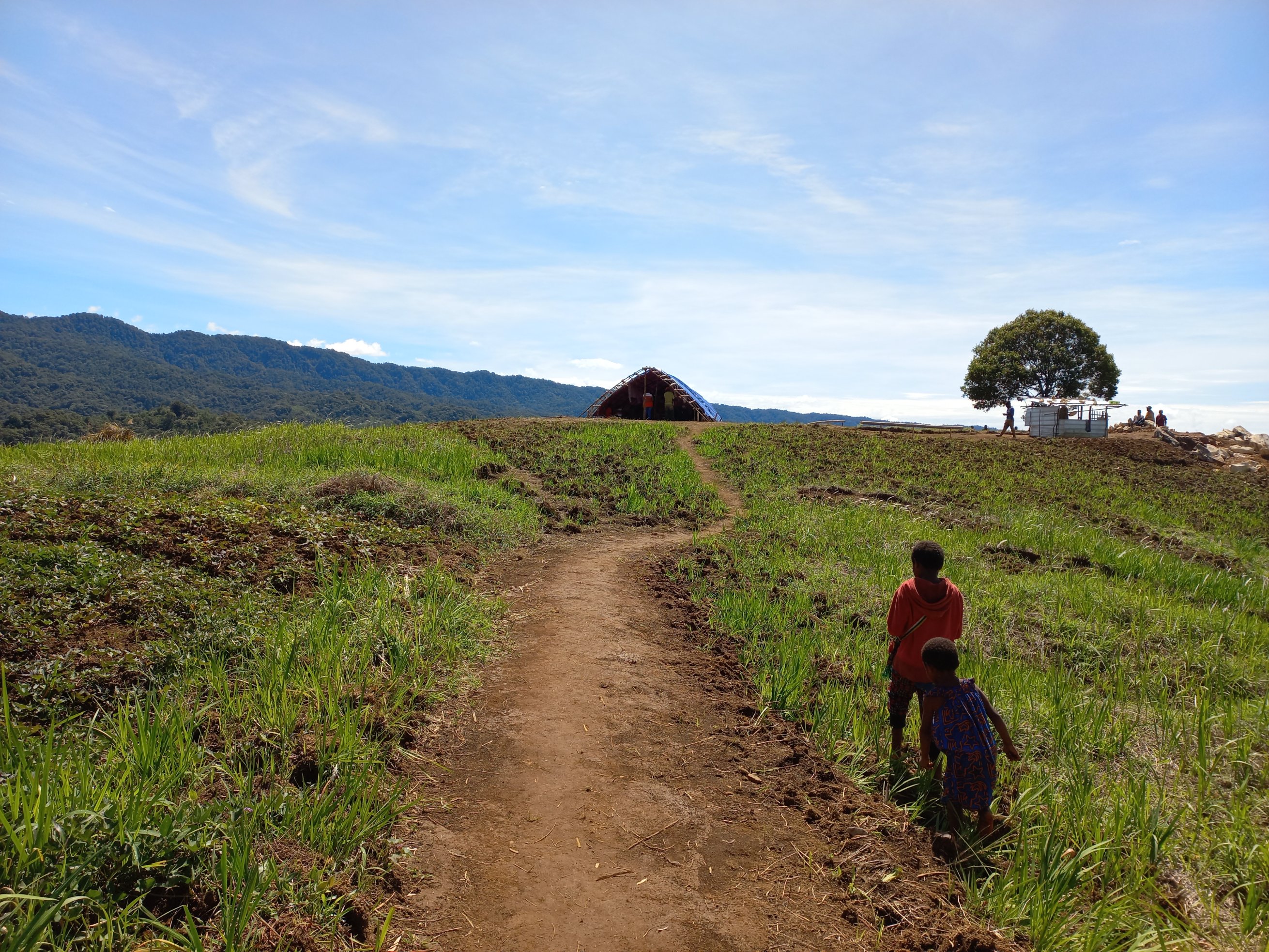
Known for its production of sweet potato, the Highlands Region of Papua New Guinea has great potential for agricultural development.
Indigenous communities have thrived here for generations. Yet, their traditional way of life is threatened by the relentless and colliding forces of climate change and conflict.
Within the highlands, unsettled disputes can give way to tribal violence. Over the past 30 years, this region has witnessed a concerning pattern of recurring and violent conflicts, resulting in casualties, displacement and human rights violations.
Additionally, Papua New Guinea's unique geography and climate make it one of the world’s most disaster-prone countries.
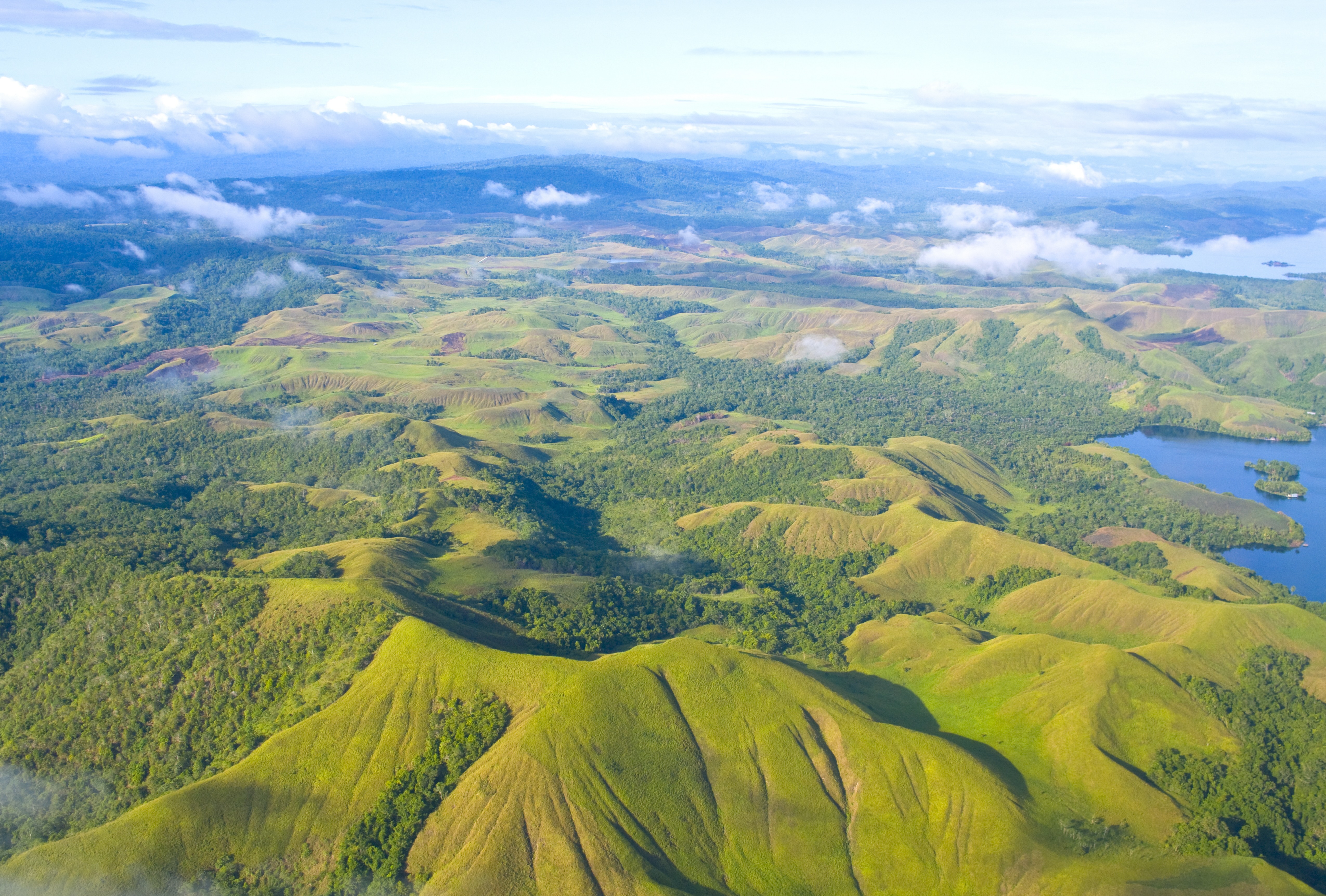
Though it contributes very little to global emissions, Papua New Guinea is one of the most vulnerable countries in the world to the impacts of climate change. The highlands are particularly susceptible to heavy rainfall.
A threat multiplier
A recent climate risk assessment in Hela and Southern Highlands revealed some of the key hazards, present and future. An anticipated increase in rainfall and temperatures could lead to more frequent and intense landslides, floods, drought and frost, threatening local agricultural production, livelihoods and peace.
Climate change can intensify underlying challenges like resource scarcity, poverty, gender inequality, exclusion and population growth. These conditions can contribute to fiercer competition for dwindling natural resources, land disputes and internal displacement, all fueling the potential for violent conflicts.
At the forefront of these challenges are women and girls serving as primary caregivers, responsible for providing food, water and energy for their families and communities. As climate variability and extreme weather events intensify, securing these vital necessities becomes harder, and in many cases unsafe.
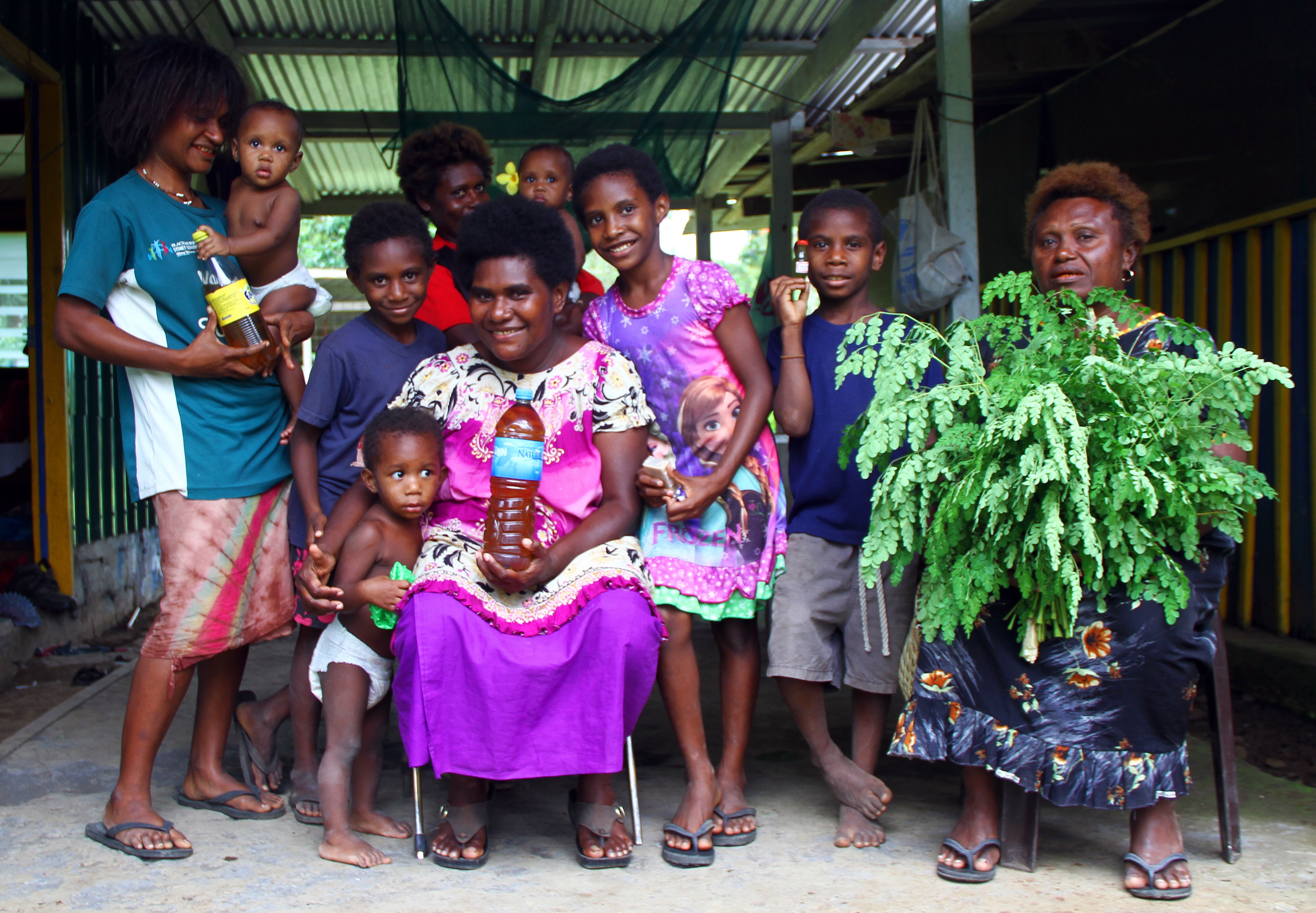
The climate crisis has a disproportionate impact on women and girls, who serve as primary caregivers, responsible for securing food, water and energy for their families and communities.
Papua New Guinea is still grappling with some of the world’s highest rates of gender inequality, ranking 169 out of 170 countries in the 2021/2022 Human Development Report’s Gender Inequality Index.
Gender-based violence (GBV) is prevalent, affecting two out of every three women during their lifetime, with at least 60 percent experiencing physical and/or sexual violence from an intimate partner.
But amidst these challenges, there is hope.
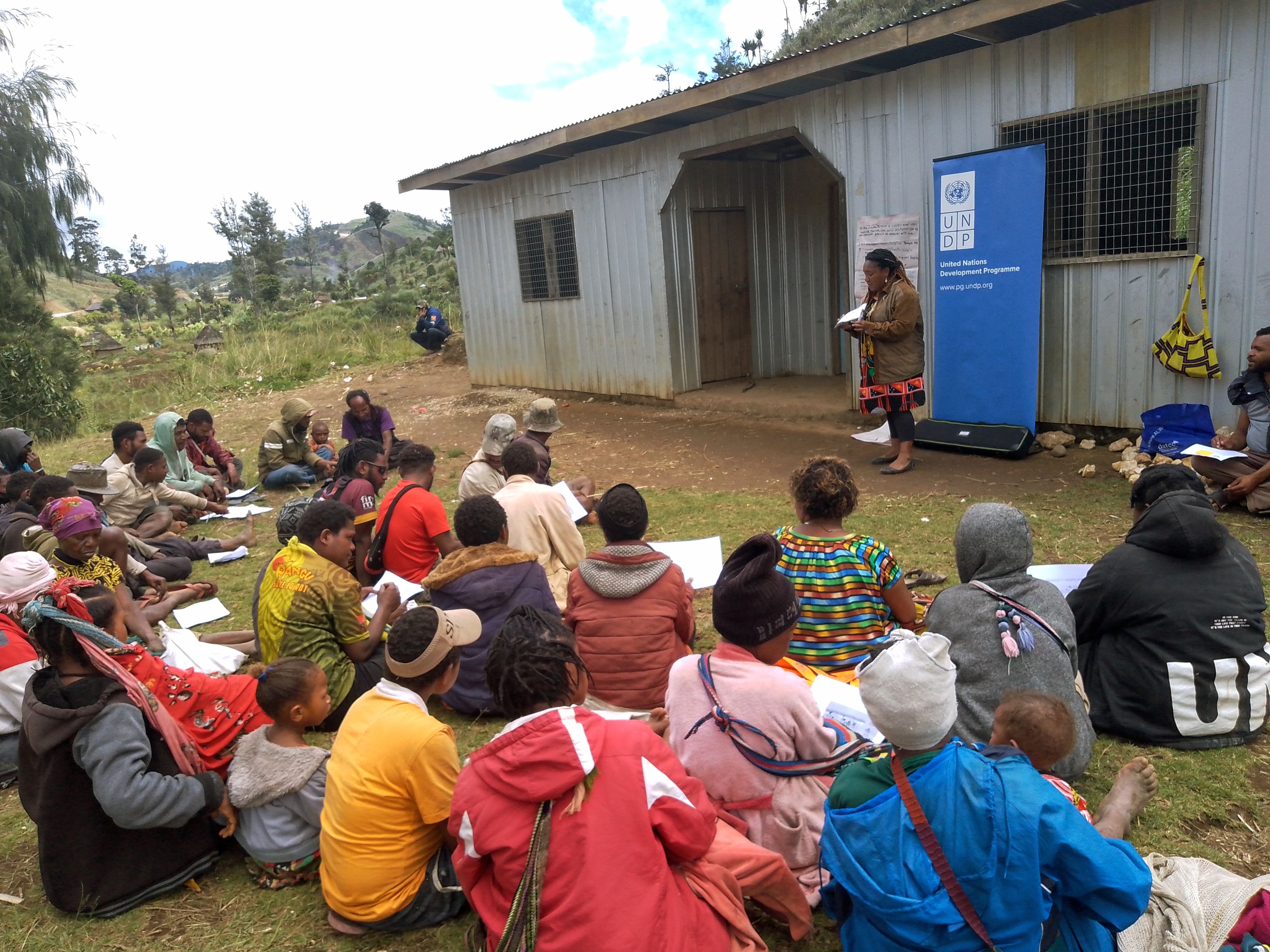
Papua New Guinea ranks very low in the Human Development Report’s Gender Inequality Index. Despite this, women in Hela and Southern Highlands are emerging as leaders in mitigating climate-induced security risks, brokering ceasefires and championing reconciliation.
Women leading the way
In Hela and Southern Highlands, women have defied the odds, emerging as leaders in mitigating climate-induced security risks, brokering ceasefires and championing reconciliation.
Recognizing the transformative role of women, the United Nations Development Programme (UNDP) and the International Organization for Migration (IOM), supported by the UN Peacebuilding Fund, initiated the “Preventing Climate-Induced Conflicts Through Empowered Women’s Leadership" project.
Through training, knowledge sharing, network building and promoting gender equality, the project empowers women leaders to become community resilience advocates. It also supports them to engage in decision-making processes to address climate-induced security risks at the community and household levels.
In the face of climate change, conflict and gender inequality, women in both provinces have displayed remarkable ownership, agency and leadership.
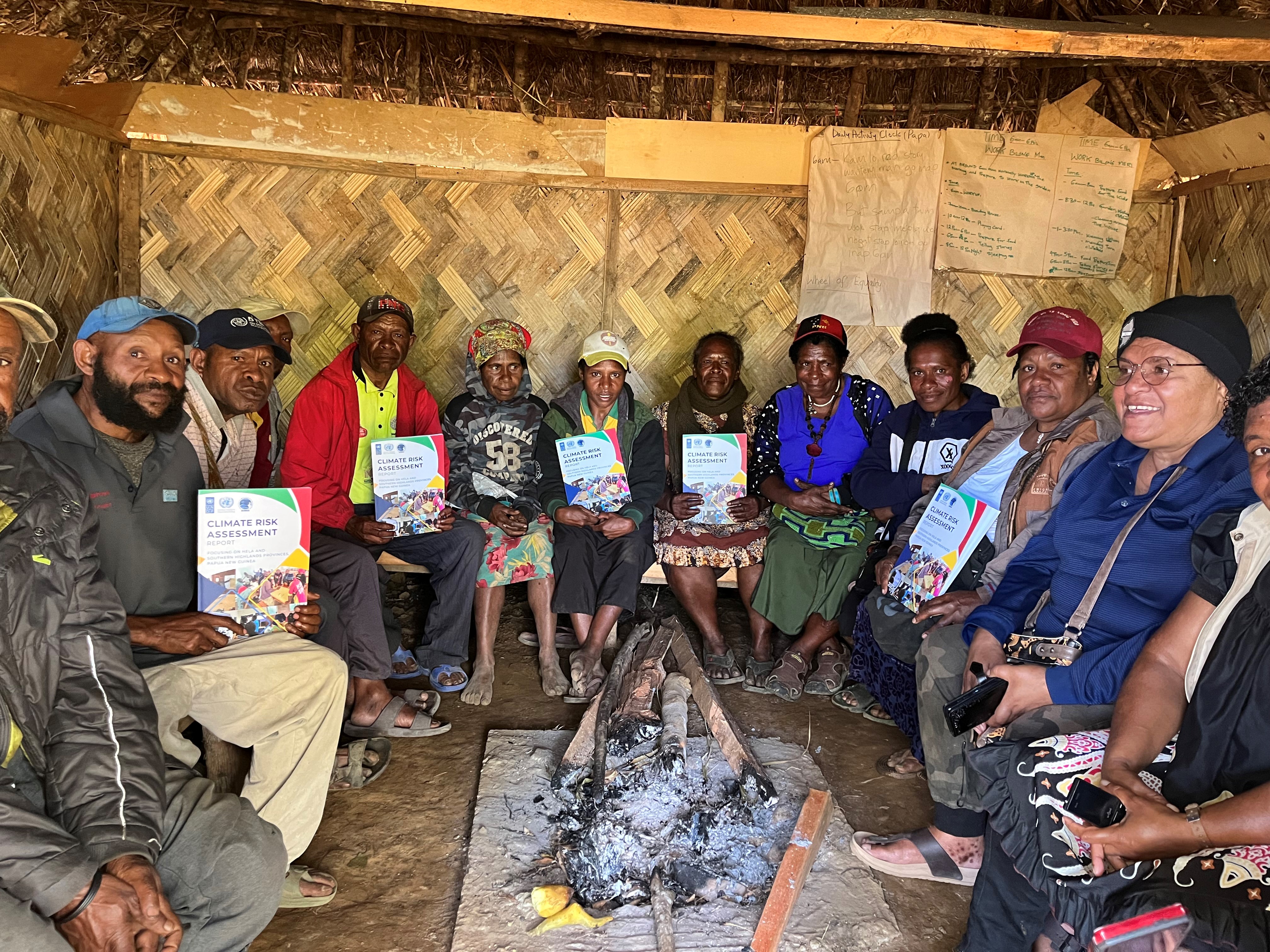
At a climate risk assessment workshop, participants worked to identify key hazards and customize interventions to enhance community resilience.
Research unveiled how women played a pivotal role in brokering ceasefires amid violent conflicts in Southern Highlands. They achieved this through mediation, collaborating with fellow women, and making effective use of church spaces – one of the few key channels through which women could effect change.
In Hela, known for its high rates of gender-based violence, a group of 286 women ingeniously harnessed church gatherings to share information and expertise on new endeavours, such as poultry farming or planting climate-resilient crop varieties, to adapt to the challenges posed by longer, harsher dry seasons.
In another instance, women from four different communities in Southern Highlands came together to rebuild their local market, which was destroyed during intercommunal conflict. The new market will not only improved their livelihoods but also lay the foundations for reconciliation and stronger social cohesion among the four communities. The first-ever locally-owned and curated women’s association in the district will be a safe space for the continued pursuit of such endeavours.
In the face of adversity, women in Hela and Southern Highlands are stepping forward as inspirational leaders and champions, battling the odds against climate-induced security risks. Through their lived experiences taking on multiple roles and overcoming herculean obstacles to provide for themselves and their families, they have built a unique type of resilience that can teach society how to adapt to the changes the future brings.

 Locations
Locations



